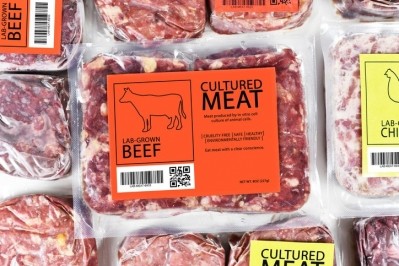Supply struggles: Ferrero Group’s main nut source in Turkey at risk of collapse due to weather crises

According to a new report, Turkey has been subject to erratic, unpredictable weather conditions and natural disasters including droughts, floods and forest fires over the past few years, which has taken a toll on the country’s hazelnut production and supply.
“Turkey is the global supplier and exporter for some 82% of hazelnuts – This means that an immense number has to be produced each year in order to meet global demand, [but weather conditions and natural disasters have led to] many of the hazel flowers in Turkish farms failing to bloom over the past few years, leading to a decline in growth,” stated the report authors from consultancy firm CIA Landlords.
“Italian confectionery giant Ferrero Group is dependent on Turkey for 80% of the nut to make their [products] including Ferrero Rocher and Nutella [hence] the collapse of this supply chain would potentially also have a significant impact on production for such brands.”
Ferrero itself also runs the Ferrero Hazelnut Company (HCo), calling hazelnuts its ‘speciality’ and ensuring its presence in every aspect of the hazelnut value chain from farm to factory.
“Turkey is an important sourcing country [for Ferrero], with a long history of hazelnut cultivation, as its Black Sea region is the world’s largest producer of hazelnuts,” Hco stated via a formal statement.
“We do also [source hazelnuts] from other countries such as Italy, Chile, and the United States – each of the hazelnut varieties from the different regions have different organoleptic properties, are distinctive and different types can work better for different products such as hazelnut pastes or hazelnut pralines.”
According to the firm, elongated hazelnuts work better for hazelnut pastes (e.g. Nutella, in Kinder Bueno), and rounded hazelnuts work better for pralines (e.g. Ferrero Rocher).
Further highlighting the firm’s dependence on Turkey as a hazelnut supplier, Ferrero acquired Turkish hazelnut firm Oltan Group in 2014, which is the world’s largest hazelnut manufacturer. According to a study by the Indian Institute of Management Bangalore, Oltan’s share of the global hazelnut market stands somewhere between 25% to 30%.
Faced with increasingly substantial issues arising from uncontrollable large-scale climate events in the country, the firm has opted to take longer-term approach which includes both sustainability initiatives, investments and risk diversification.
“In partnership with farmers and suppliers, applying regenerative agriculture to hazelnut farming is [a major strategy] for Ferrero to enhance farm biodiversity and improve soil health as well as farmers’ climate change resilience,” the firm said via its recently-announced Hazelnut Charter.
“Climatic stresses such as drought, heat waves and flooding which impact agricultural crops globally [including hazelnut farms] are now increasingly evident as a result of changes to our climate - We [have to] consider the evaluation of hazelnut varieties with increased resilience to both extreme climatic variations and diseases as a key for farmers and the wider hazelnut sector.
“Our farms [cover] a wide range of growing conditions; hence we are well placed to continue efforts in identifying the varieties best suited to the different farming environments, and we commit to continue investing in this long term research in the varieties best suited to evolving conditions and make the research results available to the wider farming community.”
As for risk diversification, Ferrero has also increased its efforts to research and develop new potential markets for hazelnut production with the use of new technology – for instance, the firm has worked with the Euro-Mediterranean Center on Climate Change (CMCC) to study a region in South East Australia, with the aim of developing climate projections and other predictive services to aid hazelnut production.
Labour accusations
In addition to climactic challenges though, Ferrero has also been battling labour abuse accusations in Turkey since late 2021, with farmers claiming to have to ‘kneel from dawn to dusk’ and complaining of insufficient wages and overall exploitation by the firm.
According to data from the Istanbul Chambers of Agriculture, Ferrero is purchasing hazelnuts at 22 to 23 Turkish liras (US$1.48 to US$1.55) per kilogramme, but selling these at US$23 and the potential of a full monopoly by the firm is on the horizon.
“How can [they] be allowed to do whatever they want when we account for 70% of production? They should not be allowed to?” said Istanbul Chambers of Agriculture President Omer Demir in a media statement.
“Turkish [authorities] need to do something, otherwise they will control everything everywhere and we will come to a point where we cannot sell our product to anyone else but them."
The Turkish government has voiced a willingness to make changes – but so far as of March 2022, not formal steps have yet been implemented.
As for Ferrero, the firm is sticking by the human rights principles laid out in its Hazelnut Charter including requisitions for child protection, no child labour, no forced labour, responsible labour recruitment, fair and safe working conditions, and protection of indigenous communities.
“Beyond these, Ferrero is also working on solutions with national and local authorities and other stakeholders to [embetter child protection and joyful growth], as well as fostering community-based solutions to enhance social outcomes and farmer resilience”, said the firm.


















